Peek into the lives of these two sisters whose home may be small—but whose impact flows beyond its walls in gentle, deep, and surprisingly global ways.
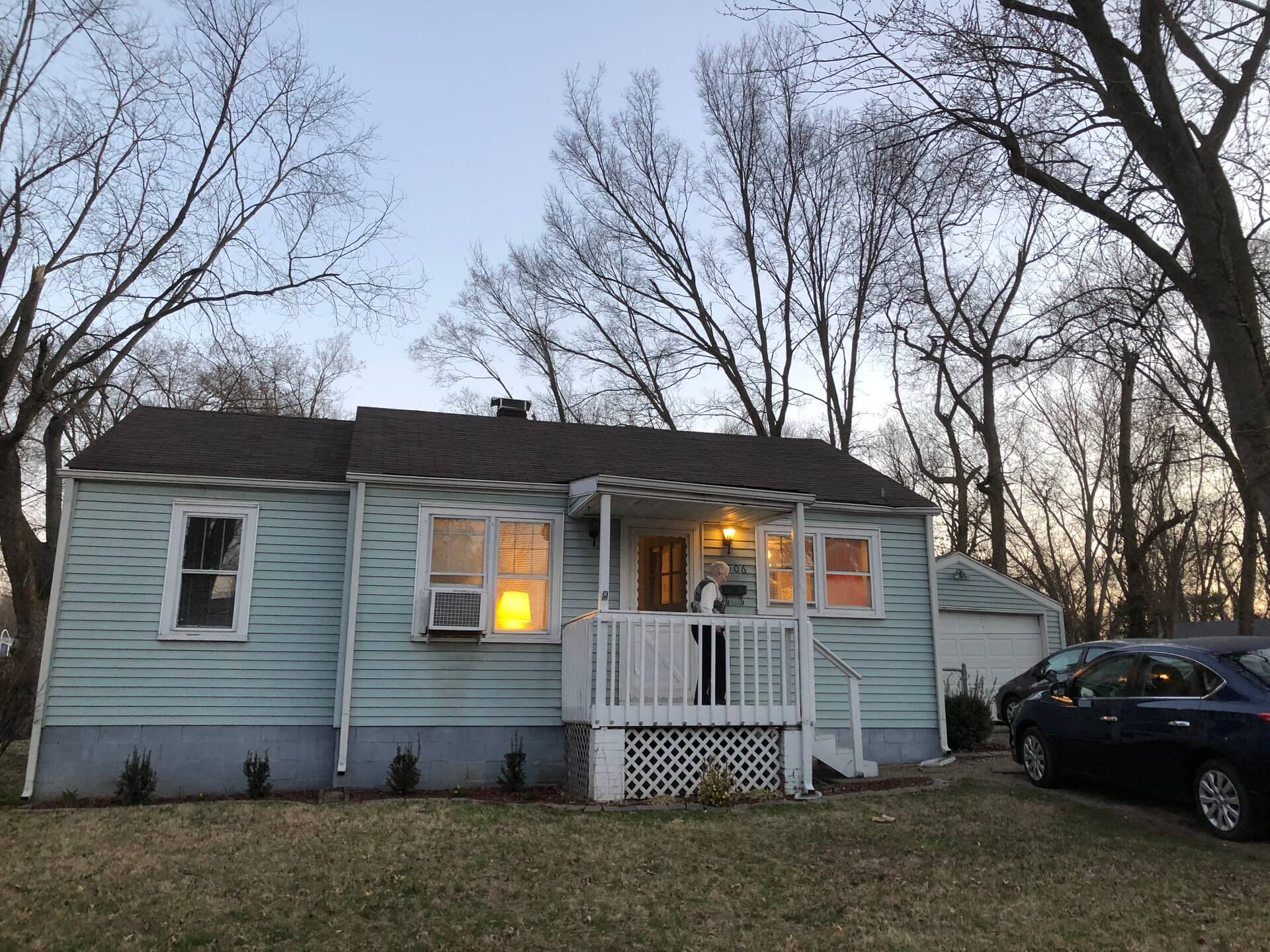
“Give and it will be given to you. A good measure, pressed down, shaken together and running over, will be poured into your lap. For with the measure you use, it will be measured to you.”
–Luke 6:38
There is a standing joke among the Dominican Sisters of Springfield that the rented house in Alton, Ill., where Sister Rose Miriam Schulte and Sister Georgiana Stubner lived 2013-2019, is the smallest house ever occupied by two or more members of the community. Technically, the house on Hoover Drive doesn’t meet the standards for a “tiny House,” but it comes close.
What is more remarkable than the tiny space they share
is the out-sized impact of their witness.
Here is a glimpse at the impact made by these two sisters of ours—well-past “retirement age”—as they live out their vowed life, prayer life, and shared life in Madison County, Illinois.
Never Say Never
“It is not something I’ve ever, ever, ever, EVER wanted to do.”
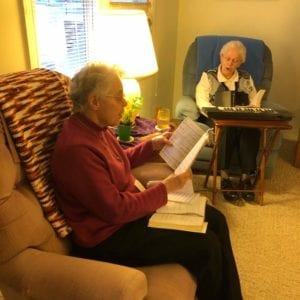
This is how Sister Rose Miriam Schulte explains her initial attitude toward living on a “two nun mission.”
After 53 years of religious profession—eight of those lived as prioress general—the idea of living with just one other sister challenged her notion of community life.
For almost 14 years, Sister Rose ministered as a family counselor in Madison County, on the Illinois-side of the Mississippi near St. Louis while living with her sisters ministering in St. Mary and St. Mark Parish in Madison and Venice. In 2013 the last of these sisters, Sister Georgiana, completed her parish work and moved to a new ministry. Their happy home was needed for other purposes.
Dominican Values:
“Common table, common purse, common life"
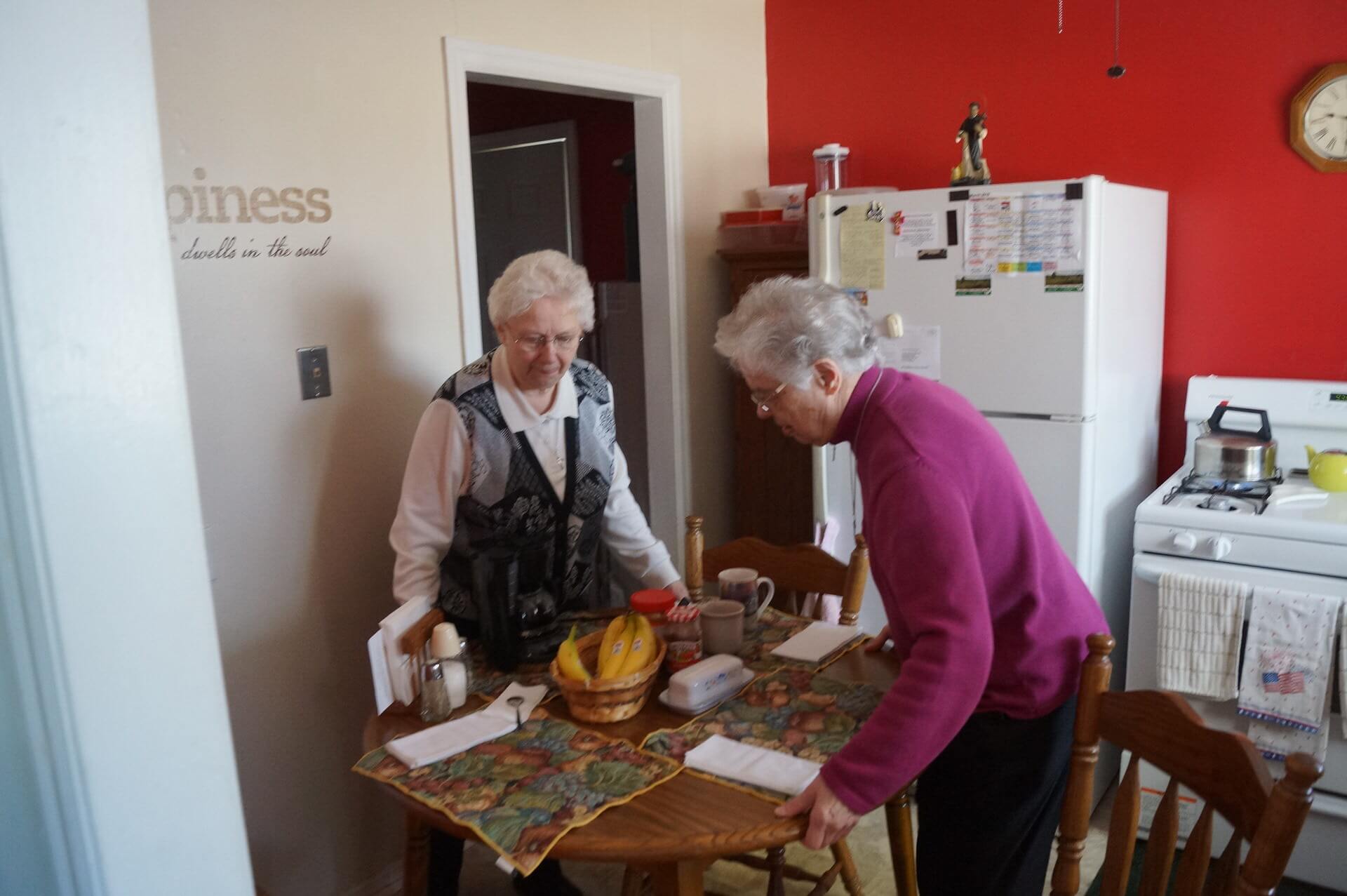
Living in a tiny house with one other sister, says Sister Rose Miriam “Has been a positive exercise in the kind of collegiality that speaks to who we are and who we try to be” The recipe for that collegial witness—Dominic’s Holy Preaching—includes relationships with other sisters who minister in communities within a decent radius from Alton, strengthening ties with women and men who’ve made commitments as associates of the congregation, and rooting themselves in the St. Ambrose Parish community. For Sister Rose Miriam, among the most enriching experiences enabled by her tiny-house living is her ministry with men and women in the process of discerning their own vocations to religious life.
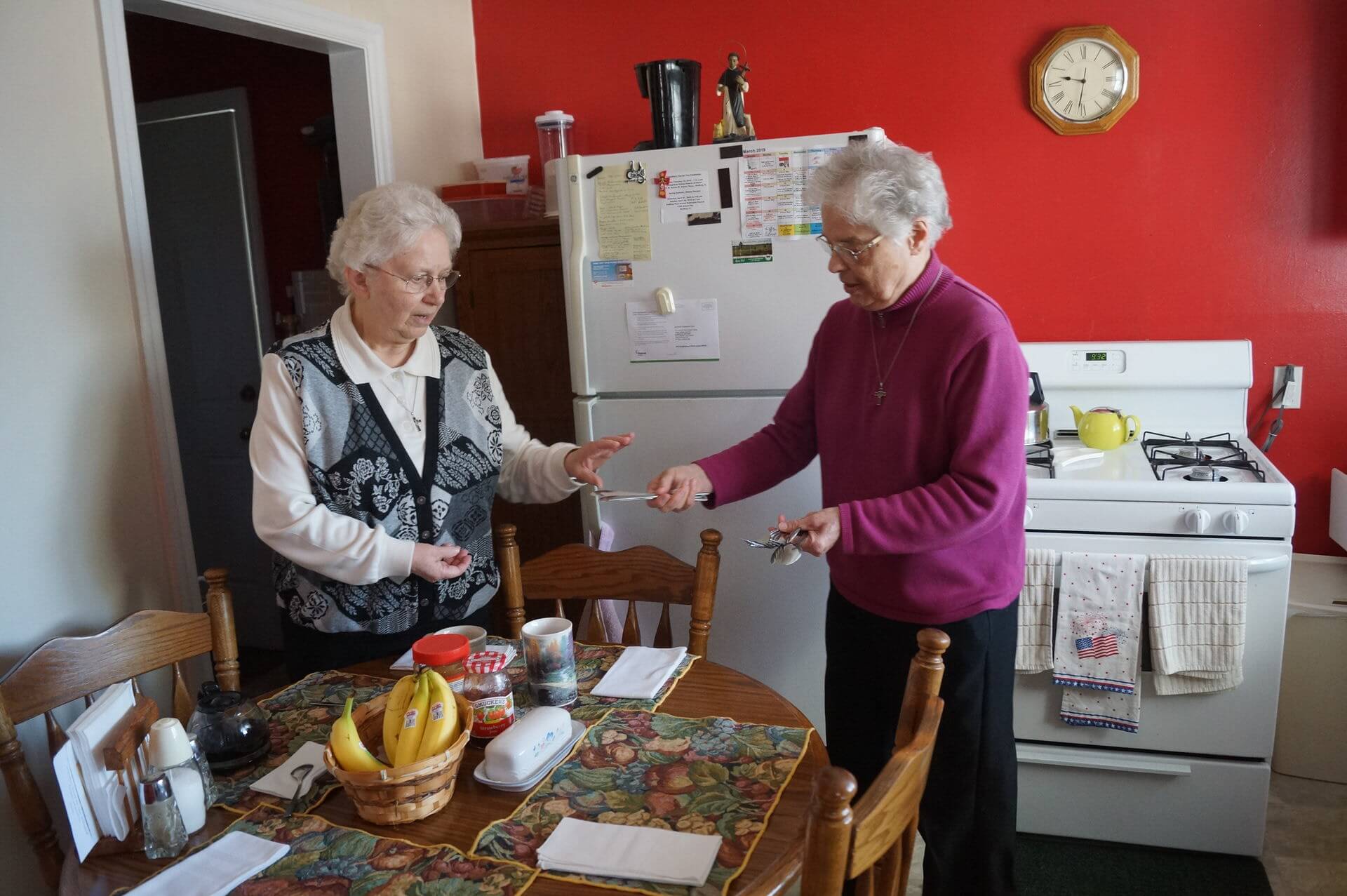
“I didn’t want to live alone, that would be even worse,” Sister Rose confessed. For much of her religious life she lived in groups ranging in size from 6 to several dozen. Despite her concerns about the dynamics that can make living in pairs a challenge for religious women, she suggested to Sister Georgiana Stubner that perhaps they move together to Alton, putting Sister Rose closer to her place of ministry, Madison County Catholic Charities.
Once Sister Rose realized the values Springfield Dominican Sisters have clung to for decades—“common table, common purse, common life”—could transform even a two-nun mission into a dynamic witness of Holy Preaching, she was happy to give it a try.
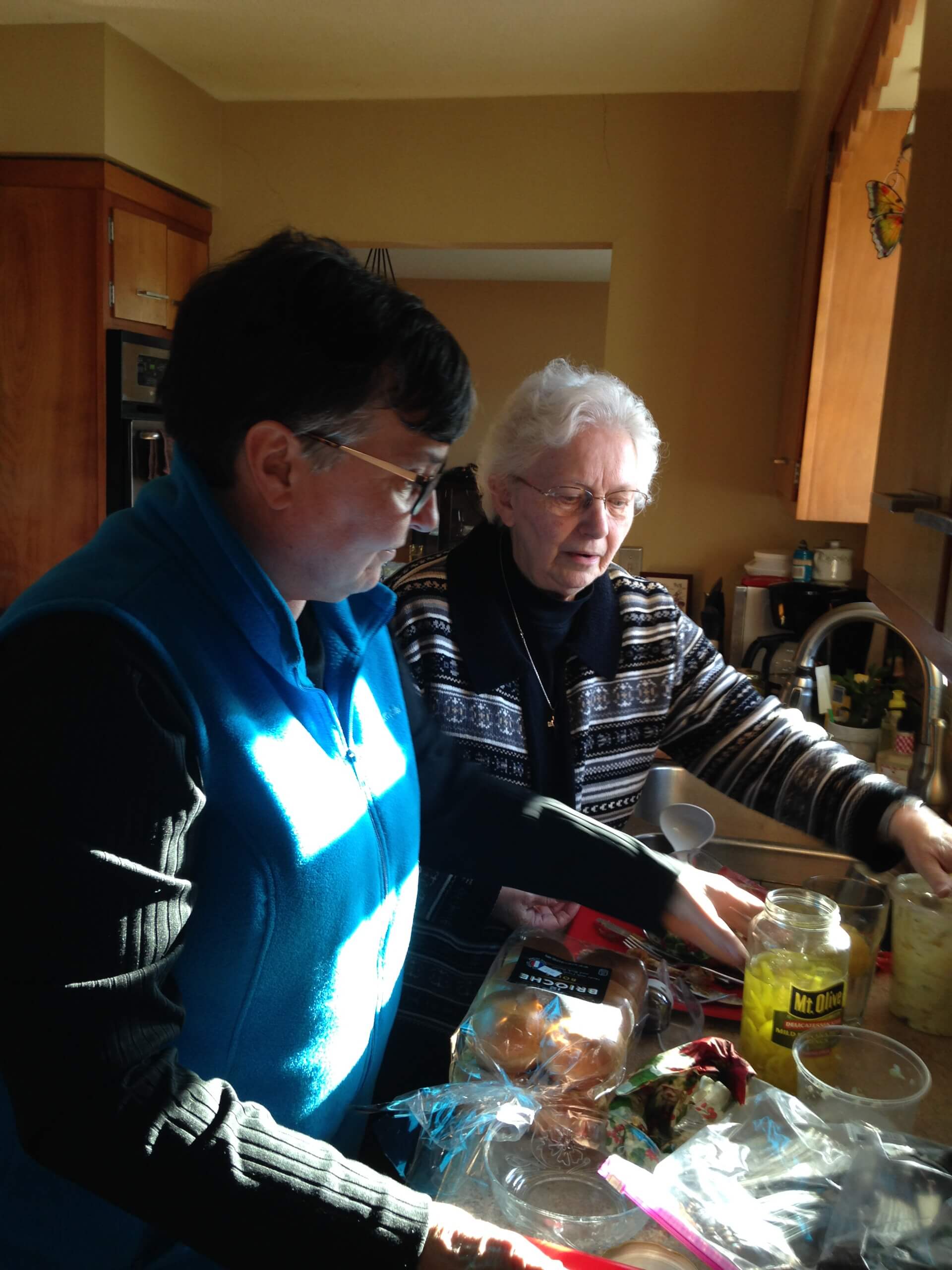
For six years these two Dominican preachers have witnessed to what St. Dominic called “the Holy Preaching.” This is the idea that even before we formulate with words our relationship to Jesus Christ and proclaim his message, we demonstrate that message in the way we live.
Soon this will change. Sister Rose has, at the age of 76, been elected once again to community leadership and the two of them will move from Alton to a new community Springfield. This story remains, however, a shining example of their witnesses of love and hope in this little corner of Metro East St. Louis.
What good is small?
“I’ve found that the focus of community life changes when there are just two people in the house,”says Sister Georgiana, who moved into the tiny house with more two-nun mission experience than Sister Rose. No one relationship can fulfill all human needs. That is true for everyone no matter what their vocation. But for vowed religious, a healthy, vibrant, and generative life requires balanced set of relationships with others within and outside the community, she observed.
Her ministry and Sister Rose’s, plus their commitment to congregational priorities like building fruitful relationships with Springfield Dominican associates and developing a strong skill set in antiracist behavior and analysis has led to a vibrant and meaningful community life for the two of them for the past six years.
Despite early misgivings, Sister Rose now acknowledges the value of their presence in this little corner of Alton. Primarily, the house they rent is a sign of their commitment to simple living. There is no room for things they do not need. And it has helped them refocus their sense of community.
This understanding is key to seeing the wisdom of “tiny convent living” and small community dynamics. Follow along, as we peek into the lives of these two sisters whose home may be small—but whose impact flows beyond its walls in gentle, deep, and surprisingly global ways.
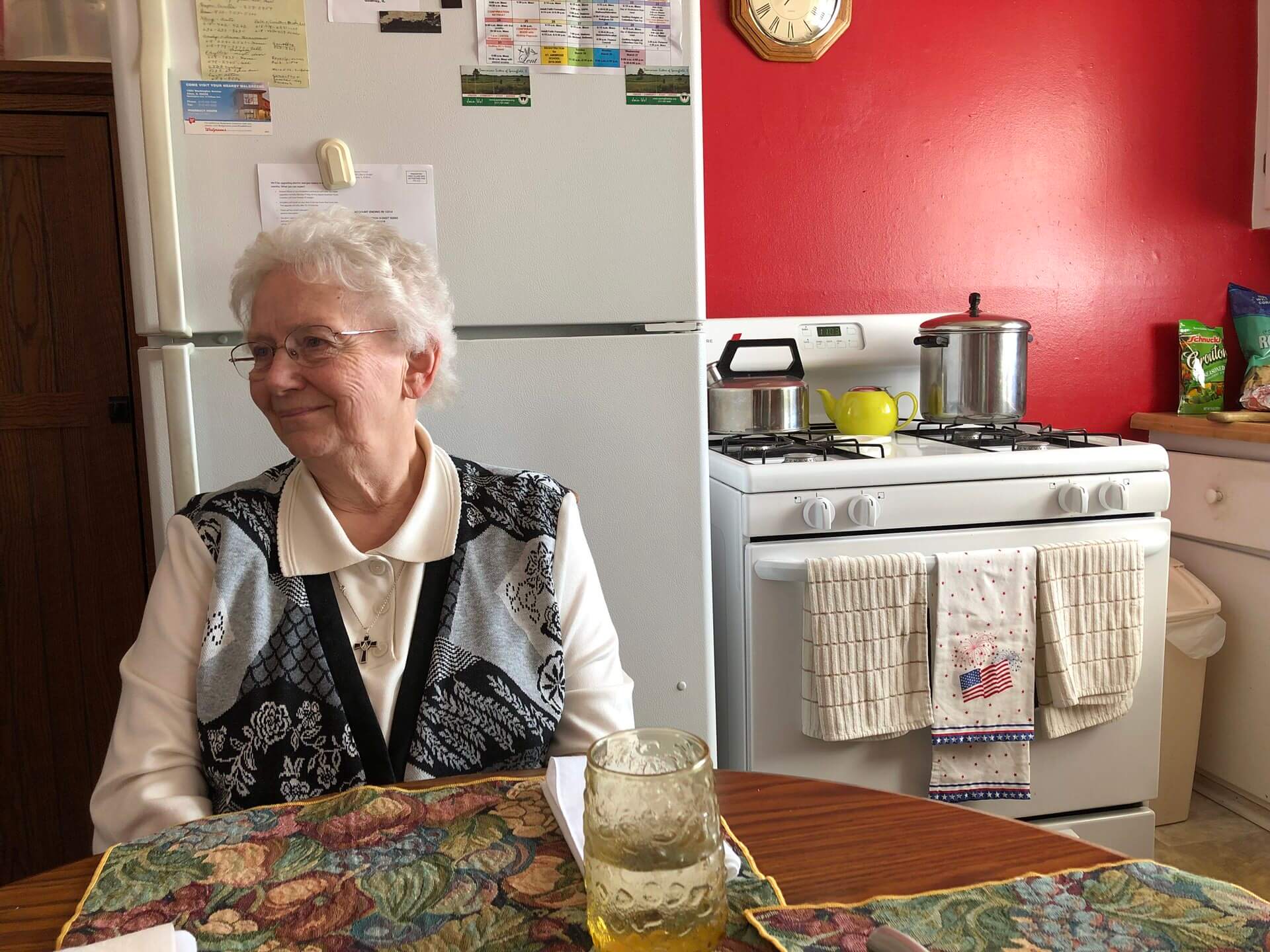
Sister Georgiana: Big-City Girl,
Small Town Soul
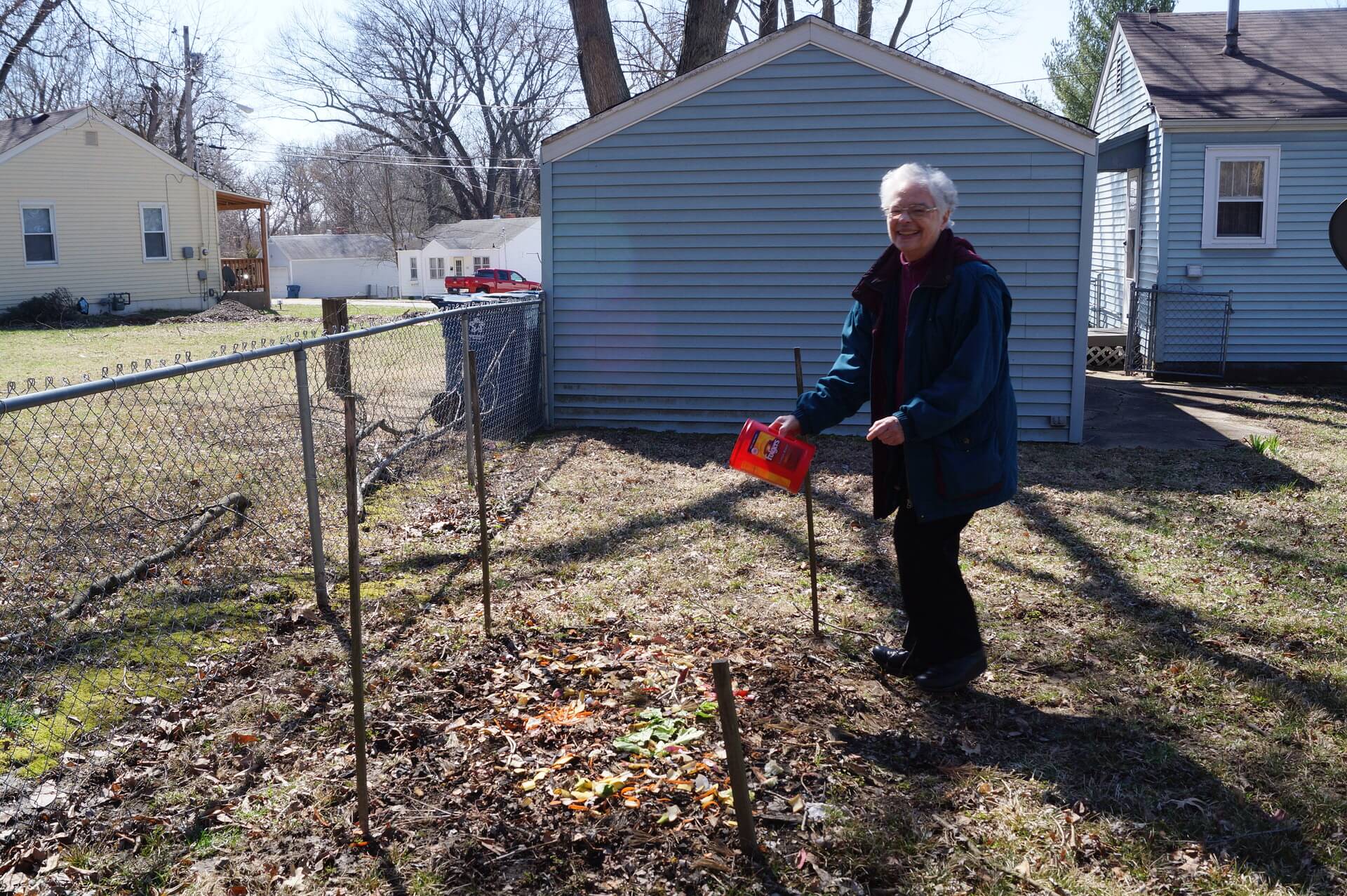
Sister Georgiana Stubner’s job is to answer the phone and count the collection. But her ministry? That’s different.
“I’m here to do this thing, but my ministry is much more than that” the soft-spoken octogenarian says from an office at St. Ambrose Parish in Godfrey, Ill., where she is a welcoming presence. “My ministry is being in relationship with people.”
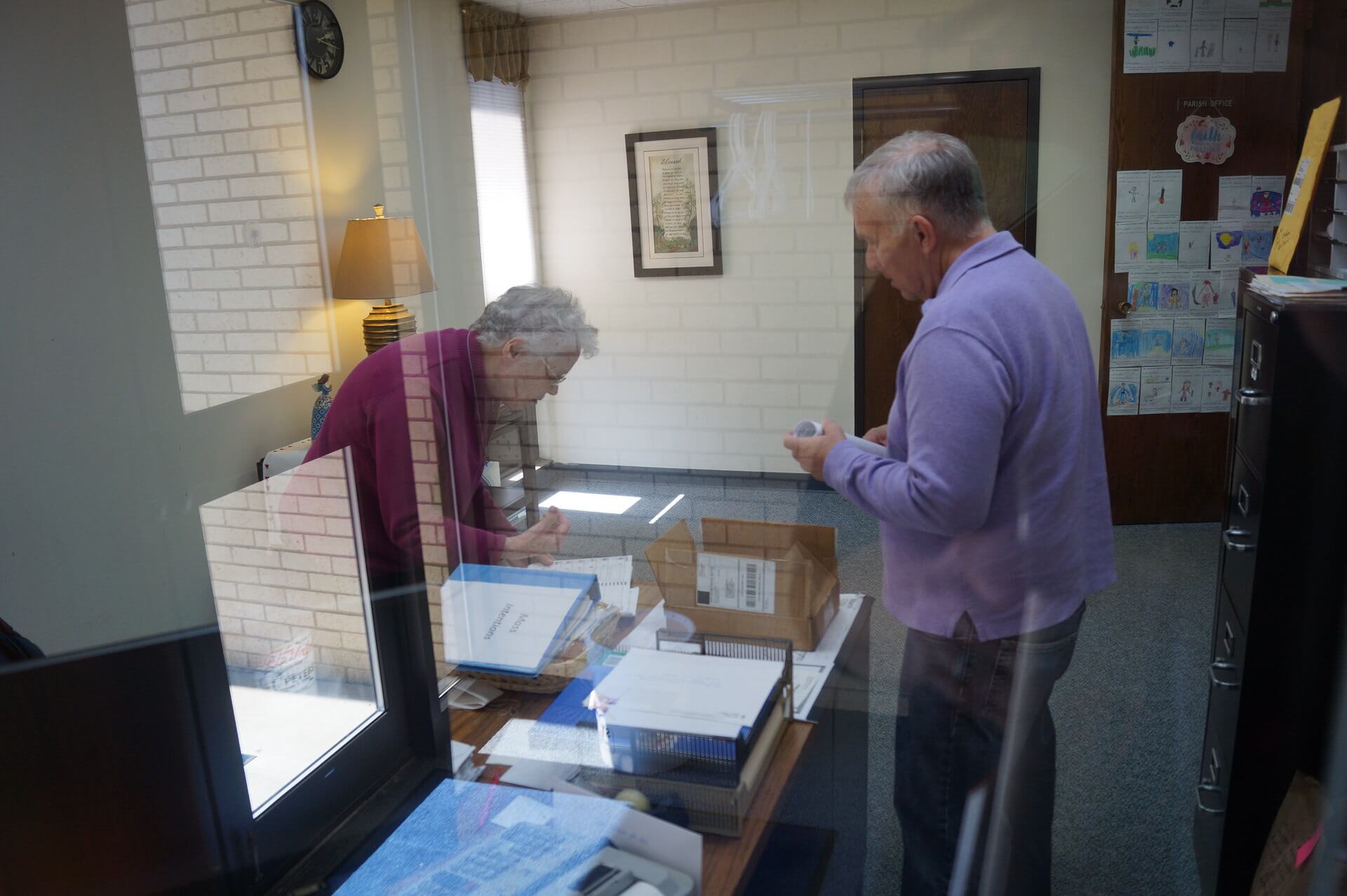
A ministry of "being nice"
This is what St. Ambrose pastor, Father Steve Janoski, calls the ministry of “being nice to people.” It’s the reason he’s happy to have Sister Georgiana join the staff for a few hours each afternoon at the vibrant parish and school that serves many Catholic families in western Madison County. “I’ve been impressed with the Dominican sisters as they preach the word of God through the way they live their lives,” he says.
This is quickly confirmed by visitors who witness Sister Georgiana turn her kind attention to a parishioner requesting a memorial Mass for a relative. Fulfilling the request takes a moment. Listening to him, seeing his grief, and responding to his need—that takes a little longer.
Observing from beyond the sound proof windows of her office, the tender concern the man receives from Sister Georgiana is evident.
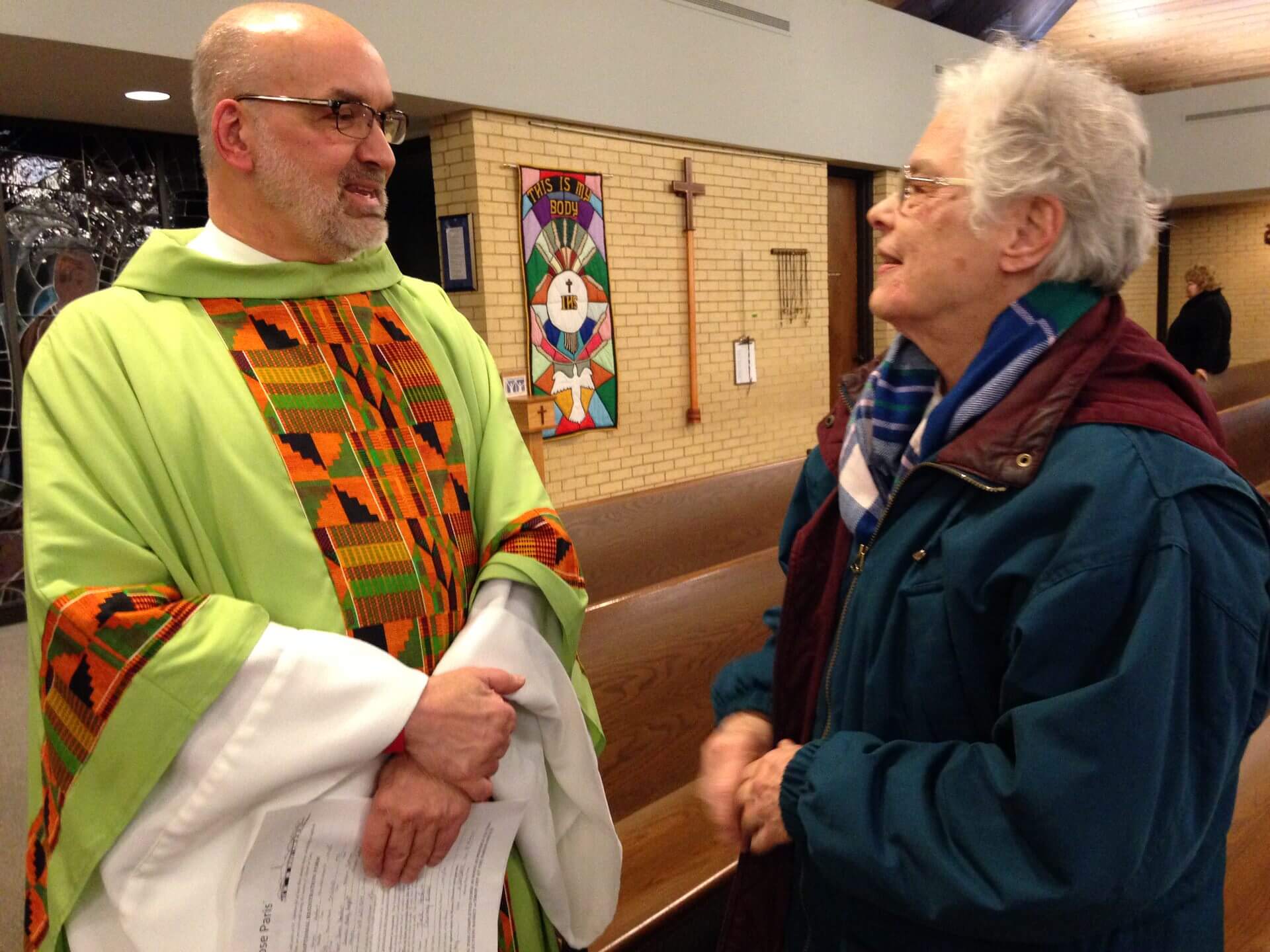
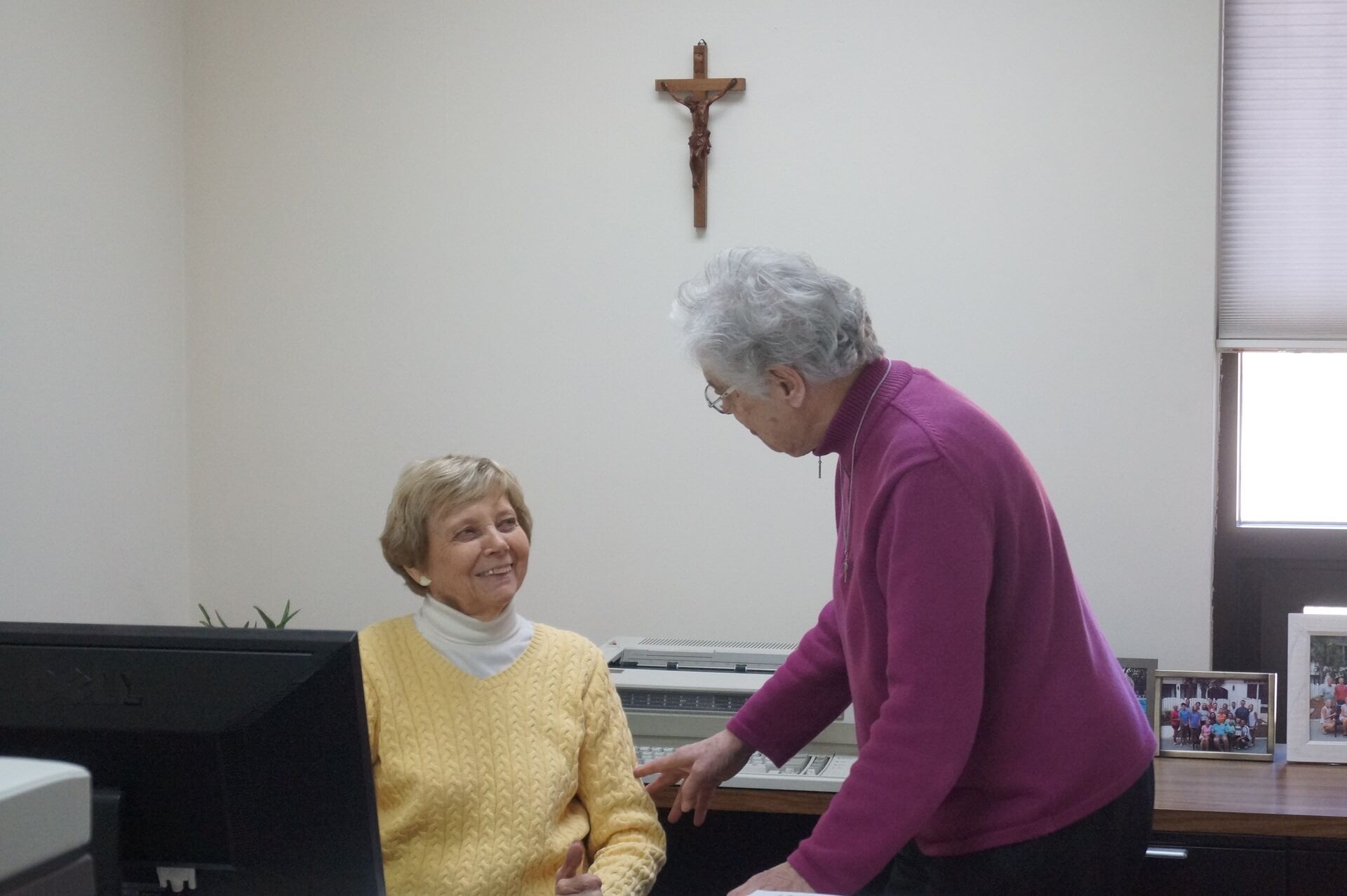
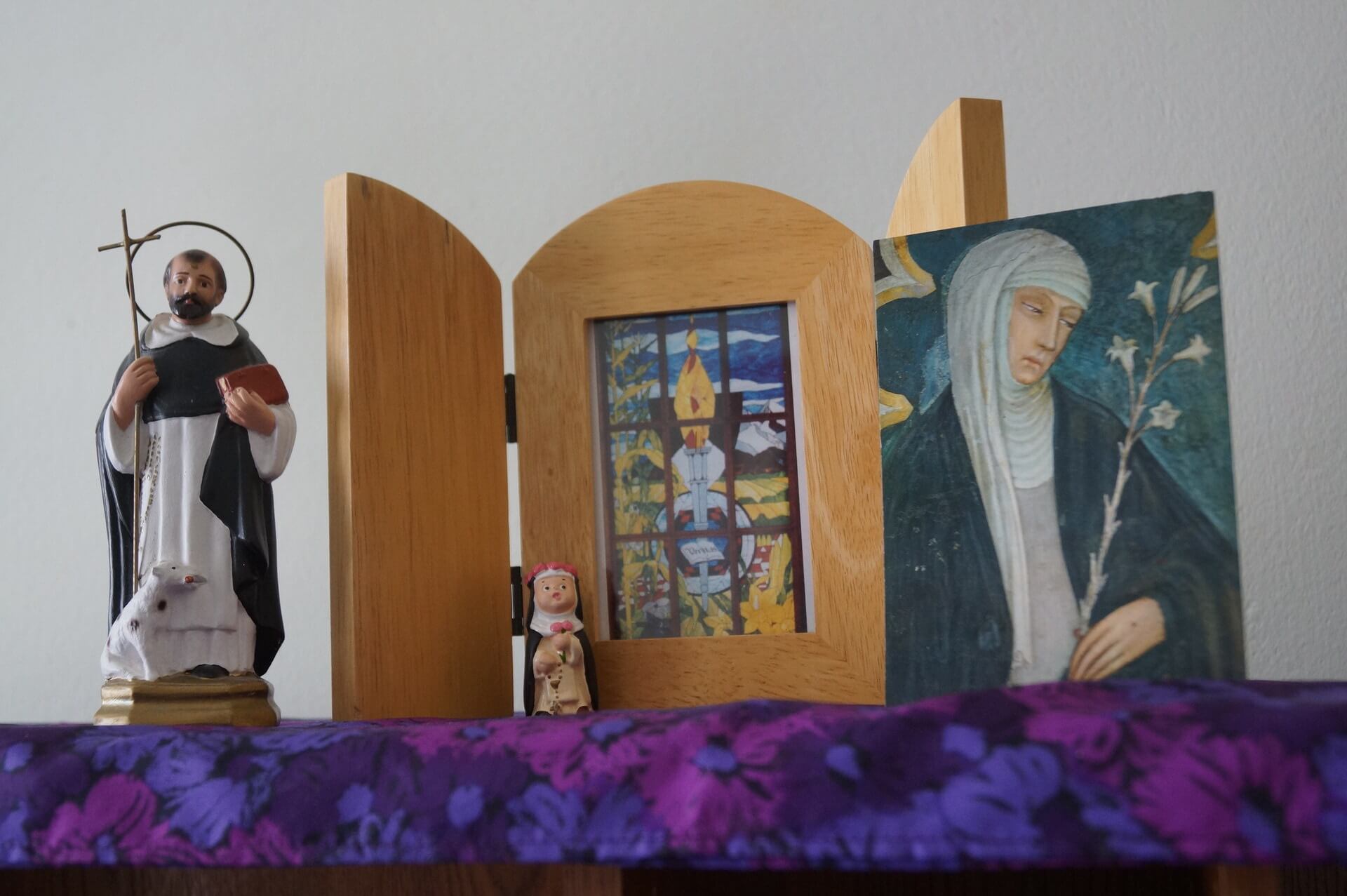
Even if Sister Georgiana couldn’t articulate the gifts nurtured in her by the Dominican Sisters who taught her at Our Lady of Grace Parish in Chicago and by her Austrian-immigrant father and her U.S.-born mother, the preaching charism—in that “holy preaching” sense—was instilled in Georgiana and her twin brother George from their youngest days.
Even if there was a time when our Dominican Sisters couldn’t articulate their call to preaching in quite that way, the example of their joyful, truth-seeking lives has touched the hearts and souls of tens of thousands over 146 years.
“My mother appreciated people for the goodness that they were,” she says. “But it took a while for God to groom me and help me grow. Looking back, I can see how truth, goodness, and hospitality are prevalent in my life and in the community,” she says.
Those gifts are evident to Sister Georgiana’s friends. Dominican Sisters on two continents attribute their vocations in part to the influence of her gifts—hospitality and its prerequisite: a humble recognition of a foundational truth. Sister Georgiana calls it
“being who you are and not who you wish you were.”
Her work at the parish and Sister Rose Miriam’s therapist’s salary enable the sisters to pay the light bill, keep food on the table, and send some money to the community in Springfield to help support the needs of sisters who are ill or retired. Financial remuneration is not what motivates their ministry, however.
Sister Georgiana’s soul-food has more to do with neighborliness, human encounter, and the lubricant that makes it all flow: homemade cookies. Whether she’s checking in on an elderly neighbor, gathering Springfield Dominican associates, or greeting the mail person, Sister Georgiana’s chocolate chip cookies are legendary. These little love offerings are a fine way into people’s hearts. They are Sister Georgiana’s secret recipe for kindness.

Cookies aren’t the half of it.
Pat Davis will tell you however, that cookies aren’t the half of it. A Springfield Dominican associate since 2009, Pat says Sister Georgianna and Sister Rose Miriam bring an intangible extra quality into the life of his family. “I don’t know how to say it,” he says “But I always feel so good when I leave the sisters’ presence. They are supportive of me and my family. After being with the sisters I feel like I’m ready to face the world again. They are very special women.”
About her ministry of presence and listening care Sister Georgiana says “I am grateful for the gift of sharing in community, though it’s a challenge sometimes. Being able to learn to listen…it takes 50, 60, 70, 80 years” she says. She stops the count at the decade she recently entered. “I’m still growing!”
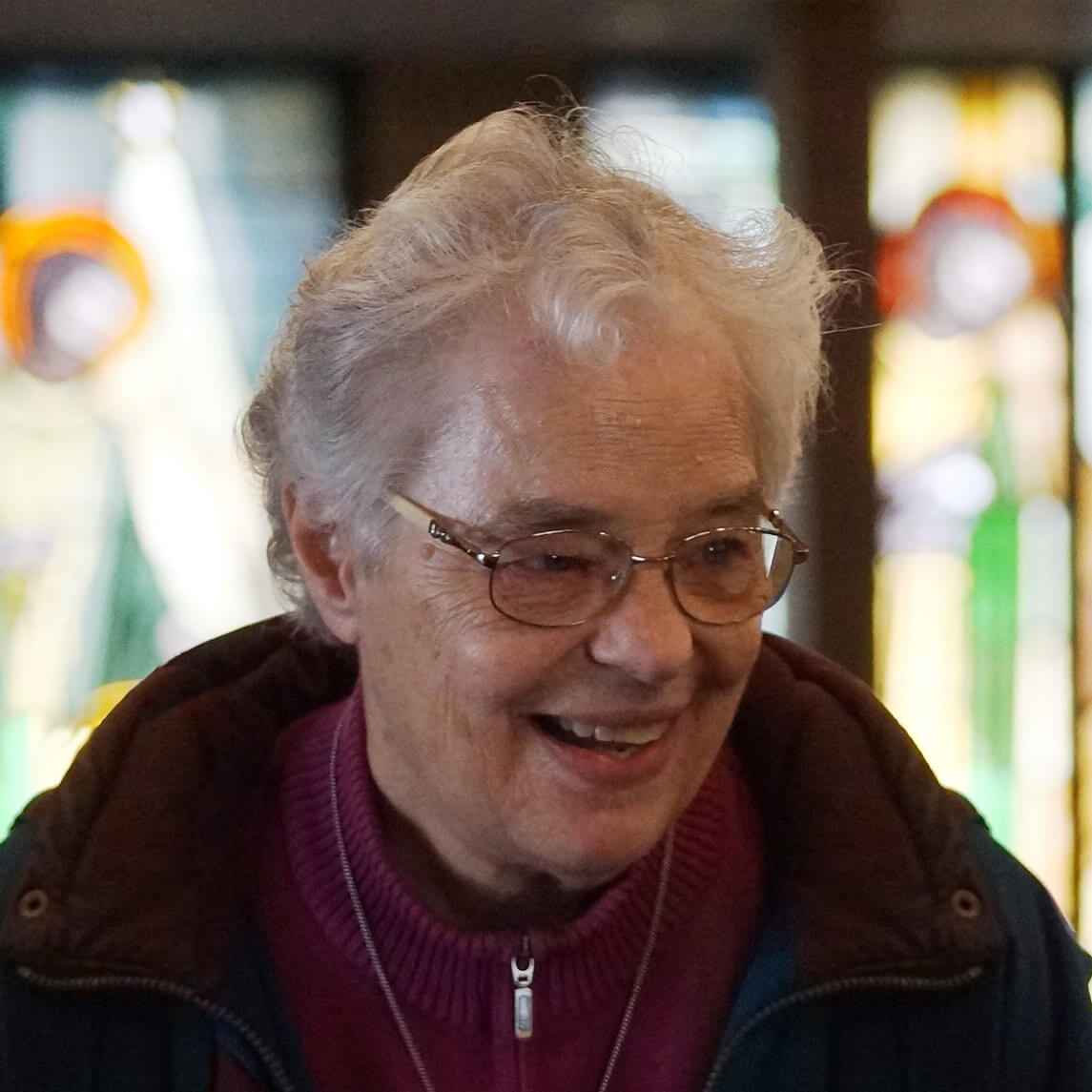
Sister Rose Miriam Schulte: What’s a Dominican?
Who knows how the spirit works in our lives? Often only hindsight lets us see. Sister Rose tells students when she realized she wanted to be a sister she had lots of options.
“I had the Precious Blood Sisters from O’Fallon, Missouri, who taught me in grade school, School Sisters of Notre Dame for high school; I worked for the Poor Handmaids of Jesus Christ as a high school kid, and my sister was already in the Franciscan novitiate” she says, ticking the congregations off on four fingers.
“I checked ‘em all out and I didn’t feel called to any of those places,” she laughed.
Her next step was to talk with a parish priest, who in later years reminded her that she asked “‘What else do you have to offer?’”
When he mentioned the Dominicans young Rose’s response was “What’s a Dominican?”
“I’d never heard of them. I’m from Quincy. We didn’t have Dominicans there.” She asked where to find them and he pointed her in the direction of Jacksonville and Springfield where there were plenty of Dominican Sisters. Never one to waste time, Rose says she “Conned a friend into saying she was interested, I got us invited, my dad took us over [to Springfield]. It was love at first sight.”
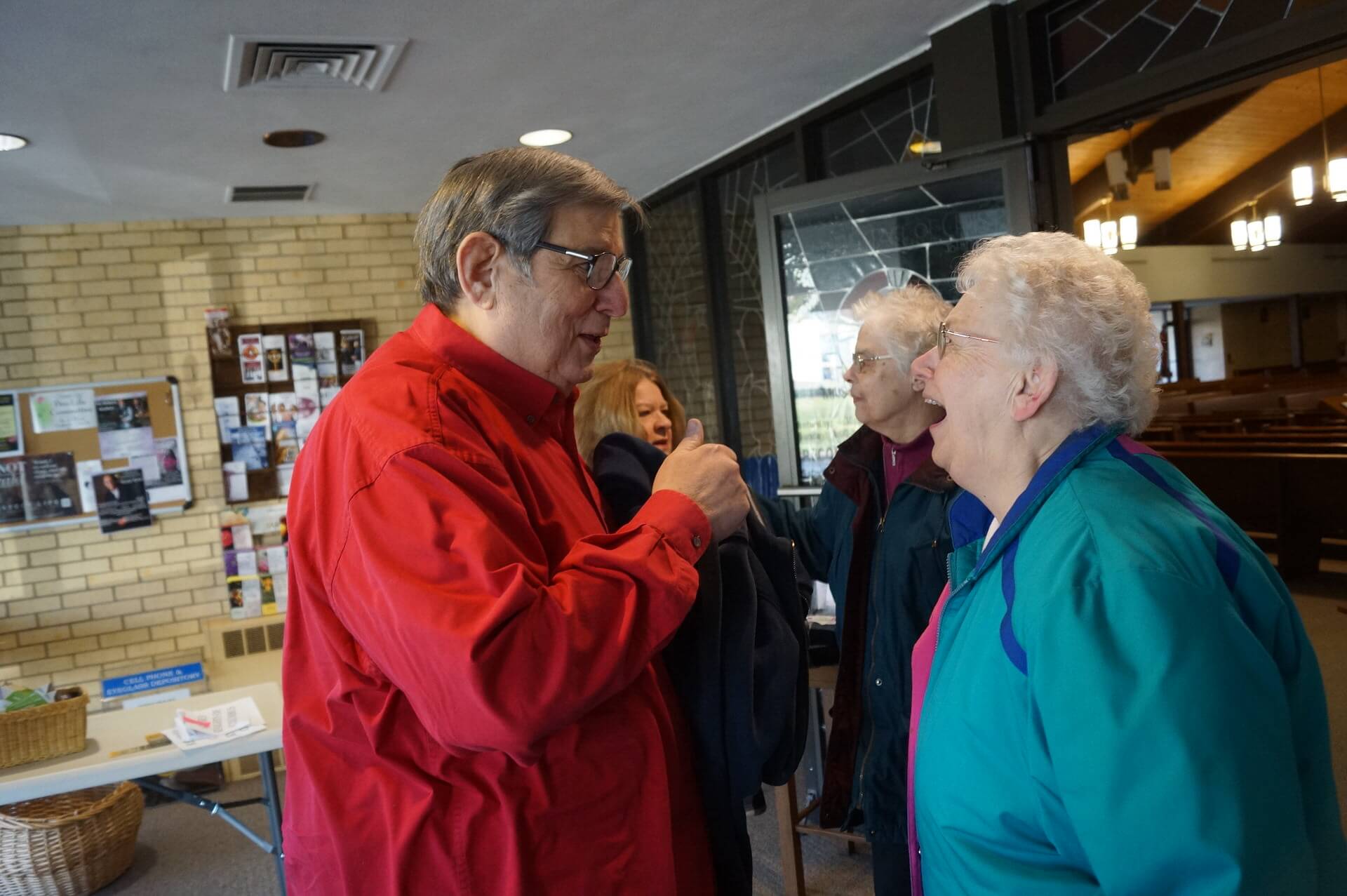
This love relationship with God and with her Dominican life has lasted 57 years. For 27 years Sister Rose was happily and effectively engaged in elementary education and administration. While she was principal at Little Flower School in Springfield the congregation drew her away to serve as prioress general. Two leadership terms later she transitioned to ministry as a family therapist having completed studies at Loyola University, New Orleans, in pastoral and clinical counseling.
She continues to bring her passion for healthy relationship s into her role as a member of the Springfield Dominican Antiracism Team (SDART), and soon, once again, as a member of the sisters’ leadership team.
Sister Rose Miriam Schulte: What’s a Dominican?
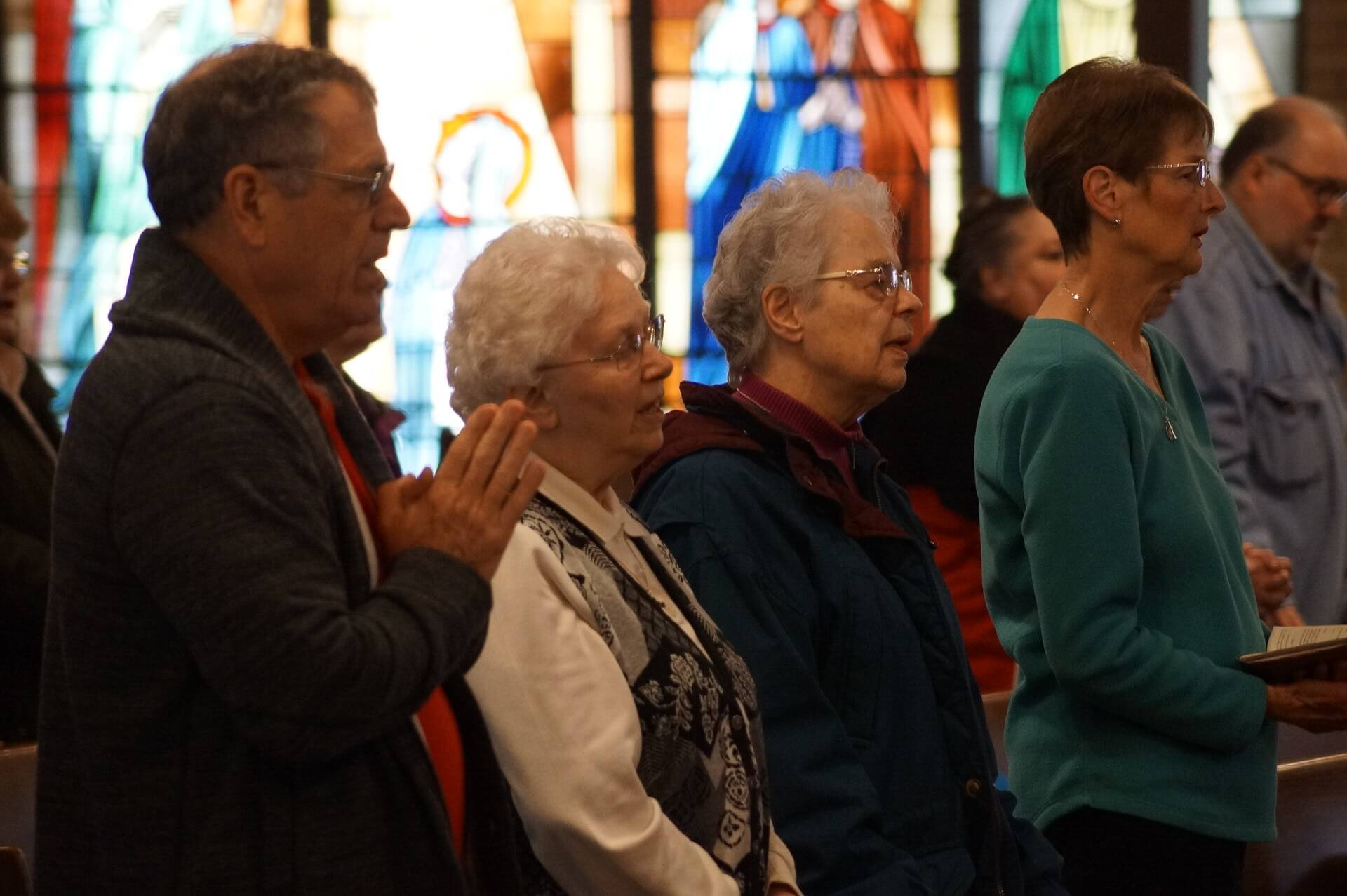
On a sunny bluff above the Mississippi River in Godfrey, Ill, Sister Rose is greeted warmly by Brother Pat McGee OMI, director of novices for the Oblates of Mary Immaculate, who’ve lived on this land for more than 60 years. It becomes immediately clear these two well-seasoned religious hold one another in high regard, built on the foundation of a common understanding of the uncommon call they share.
Brother Pat’s role is to guide an international community of aspiring Oblate novices through the early stages of discernment of the call to religious life. He values Sister Rose as a partner in this mission.
“It has been very good having Rose work with us,” he says, as the two stand in the sunshine, the great river sparkling below. “It is helpful to have a facilitator who comes from outside [our community] but lives inside religious life to help us with community dynamics.” It is especially good, he says, for the novices to experience “influence and insight from a woman who is for us a sister, and who helps with issues of communication.”
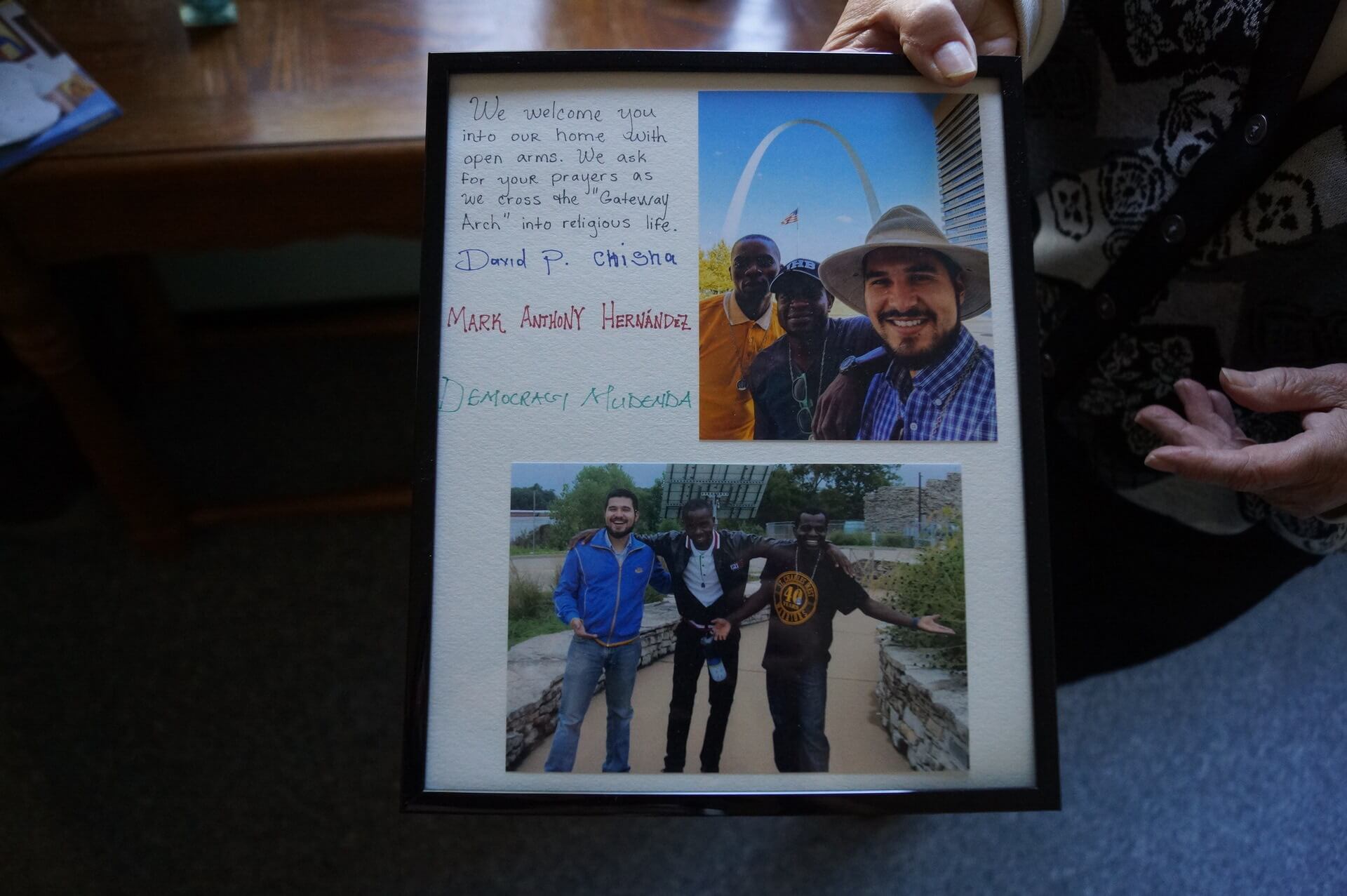
Another gift Sister Rose brings to her ministry with the Oblates, Brother Pat says, in intercultural competence, which is important for the Oblates as their congregation grows in diversity. Recent classes of novices included men from India, Australia, Canada, India, Korea, Sri Lanka, United States, Vietnam, and Zambia.
This appreciation is mutual. Sister Rose values deeply the opportunity her relationships with the Oblates provide for interaction with religious men—brothers like Pat, priests, and the novices.
“The spirit of the Oblates is very similar to our own,” she says. “They have an openness to—a commitment to—live community. They have a missionary spirit. To a person, every one of these [novices] articulate that their mission is to the poorest of the poor, the people on the margins.” From them, she says, she learns as much as she teaches.
Transforming Power
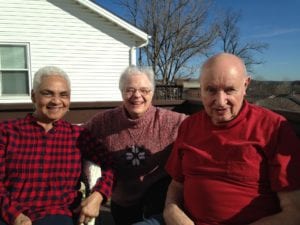
Sister Rose also facilitates for the Mercy Sisters at their intercultural novitiate in St. Louis. In these two important ways her ministry helps form woman and men religious who will shape the proclamation of the gospel message around the globe.
What Brother Pat acknowledges as Sister Rose’s intercultural competency has been forged through nearly two decades her of personal, and our congregational commitment to dismantling structural racism in our community, church, and social milieu.
In February 2019 Sister Rose joined her frequent partner in antiracism ministry, Daphne Skretvedt, to share their wisdom with the associate candidates gathered at Sacred Heart Convent in Springfield. Daphne and her husband Merlin are among the founders of the Springfield Dominican Antiracism Team.
On this day, they primed the associates-to-be with a basic understanding the systemic nature of racism and the urgency of transforming the abuse of power that creates it. Daphne, a woman of color in an interracial marriage, has acknowledged the risk it was for the Springfield Dominican Sisters to invite people of color into a collaborative mission to dismantle the effects of racism within the congregation. Both she and Rose knew, as risky as that move was, it couldn’t be effective in any other way.
Travelling Two by Two
“Two nun mission” is a ubiquitous phrase among Springfield Dominican Sisters. We hardly notice when we use it.
And Yes. We realize we are not “nuns.”
That is beside the point. What the phrase means to us is eloquently and powerfully demonstrated in the lives of Sister Rose Miriam and Sister Georgiana.
It means we follow in the footsteps of our founder, St. Dominic de Guzman, who insisted his first followers travel two-by-two. Often taken for granted now, tandem travelling—as distinct from the monastic stability that was expected—was a 13th century innovation that challenged the very structure of a church struggling to meet the needs of a burgeoning Europe on the move from countryside to city.
Sister Georgiana and Sister Rose Miriam, in the way they love God, serve the people of Madison County, and challenge the structures of oppressive power, do the same.

